One of the scariest health-related things anyone can go through is having a heart attack. The good news is that, if treated early, your chances of surviving improve dramatically. Unfortunately, heart attack symptoms — and their severity — can differ from person to person. The key is to listen to your body and never hesitate to seek help if you suspect you might be having a heart attack.
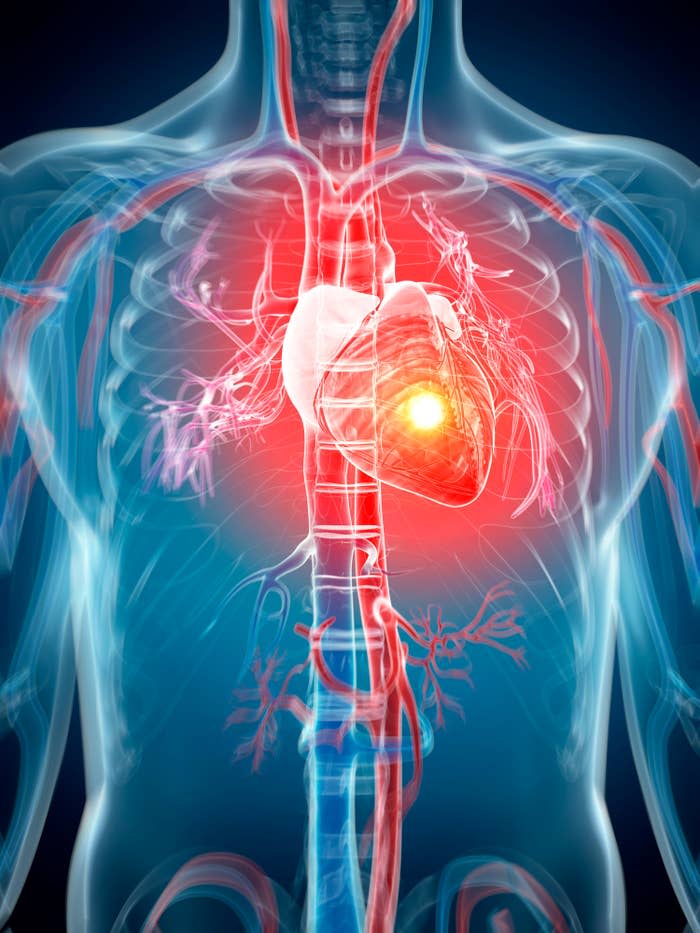
Over on Quora, hundreds of people answered the question: What does it feel like to experience a heart attack? Check out some of their stories below…which hopefully will demonstrate how different heart attack symptoms can be, and act as an essential reminder to not put off getting help if you think you might need it.
1.“A heart attack for most women is much different than for men. I had a heart attack at 36 years old and never knew it. I’d been negotiating a contract with my union colleagues, and it was getting down to the wire. I was exhausted with very little sleep, and when we finally reached an agreement, I remember standing outside and feeling a really sharp, quick electrical jolt that shot from my left arm, through my chest, and down my right arm. I thought to myself, I need some sleep. I went home and woke in the morning to find I couldn’t breathe. I felt like I had bronchitis or pneumonia.”
“I went to my doctor and, sure enough, after listening to my lungs, he told me I had pneumonia and gave me medication for it. A week later, it was worse, so back to the doctor I went, and this time, I came home with stronger medicine and an inhaler to combat the shortness of breath. Another week passed, and I wasn’t getting any better. In fact, I was even worse; I couldn’t take two steps without gasping for air. I went back to the doctors, who, this time, decided to do a chest X-ray along with an EKG. The chest X-ray showed my heart was so enlarged that it was touching the side of my chest wall, and the volts were so low they barely registered on the EKG machine.
Off to the hospital I went, where I actually flatlined in the ER because my volts were so low. The enzyme test showed I did indeed have a heart attack three weeks prior. It was that night I was standing outside and felt the jolt. Because so much time had elapsed, I ended up with significant heart damage. A heart cath showed I had two major arteries blocked, so I got a stent in the one artery that was working to ensure it stayed open. I now battle congestive heart failure on a daily basis. What feels like a heart attack to men may be completely different if you are a woman.”
—Erika F., Quora
2.“I thought I was growing old. Hiking up the hill behind my home, a climb of 800 feet, was turning into drudgery. Then, one afternoon, when walking 30 feet uphill to my house, I got very tired. My shoulder ached. I slowly went up the rest of the way, sat in an easy chair, and rested. My shoulder hurt; I assumed it was a pinched nerve, so I stretched, but it did no good. At 10 p.m. I went to bed, but was very uncomfortable. Finally, I got up and sat back in my easy chair. I was still uncomfortable. I read a book, and a few hours went by. I got back into bed, but it made my shoulder feel even worse.”
“Finally, I googled ‘heart attack’ and read down the list. Yes for that symptom; check. Neck pain! Check that symptom. After three checks, I dialed 911.
In the ambulance, I told the nurse I wasn’t sure I should have called. She laughed and said I had waited too long. ‘I get two kinds of people,’ she said. ‘Those who wait too long, like you, and those who call because they have a splinter in their toe.'”
—Richard M., Quora
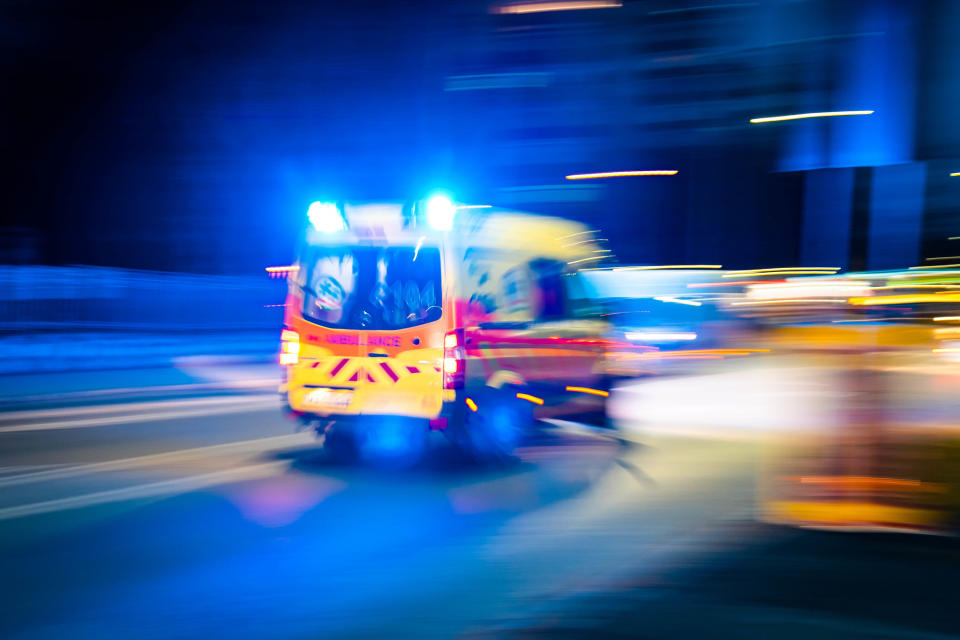

3.“My experience is fresh — I had a heart attack on Friday. I’d mowed the front yard and was about halfway through the backyard when I became unusually tired, breathless, and started to sweat a LOT. I stopped mowing and thought about how out of shape I’d become. I started the mower again, and in the next minute, my sweating and breathlessness increased even more. An oppressive pain, like a huge rock on my chest, took over. It was a steady, continuous pain. I realized I also had a terrible ache in my middle back, and then it radiated out to the backs of my arms — slightly more on the left than the right. I went inside, collapsed onto the floor, and let my wife know I was in trouble.”
“(At the hospital) they did various tests and imaging, including a CT scan and Doppler ultrasound. They had a good idea of where my problem lay. They also kept me stable and out of cardiac distress until they put me in a twilight state and opened up my femoral artery right by my groin. They ran a wire up and explored the suspected blood vessel in my heart. All the likely ones were clear. While they did this, I hazily followed along as they talked about rugby and a Hawaiian vacation. Finally, the surgeon said, ‘It can’t be his left anterior, could it?’ They jiggled and wiggled and stopped. They got really quiet. ‘Wow.’ It was 95% blocked. Right at the junction.
They installed a hybrid stent. My heart function immediately improved to almost normal. On the way out, the surgeon told me that for every person my age with this specific blockage, there were 20 or more in the morgue, and I was incredibly lucky.
As for what happens next? Well, I will need to take it easy for a few weeks and make drastic changes to my diet to eat heart healthy. With hindsight, it looks like I have been showing signs of stress for over six months at least. If I had known that uncontrolled sweating under light load was a warning sign, I would have already seen the doctor.”
—Dave P., Quora
4.“I had a heart attack 11 years ago. It is extremely painful. The only advice I could give to someone is DON’T PANIC. It puts the already laboring heart under much more stress. Recognize what is happening. Sit or lay in the most comfortable position. Get someone nearby to call immediately for an ambulance. Most people freak out so be calm for them if you can. And for you. Calling an ambulance in itself is a traumatic thing for most people. Coach them. Even though you are the sufferer, they may panic.”
“My symptoms: pain in lower jaw, neck, and upper back. Tingling in lips and fingers. Pain radiating down left OR right arm. Tightness in chest. Difficulty breathing. Nausea. Sudden cold, clammy (sweaty) skin. Be aware that not all of these symptoms happen. Maybe only some. If there is any pain in the chest area or arms, don’t wait. Lost minutes mean lost lives. YOU are your best chance of survival. So be your own rock.”
—Charmaine J., Quora
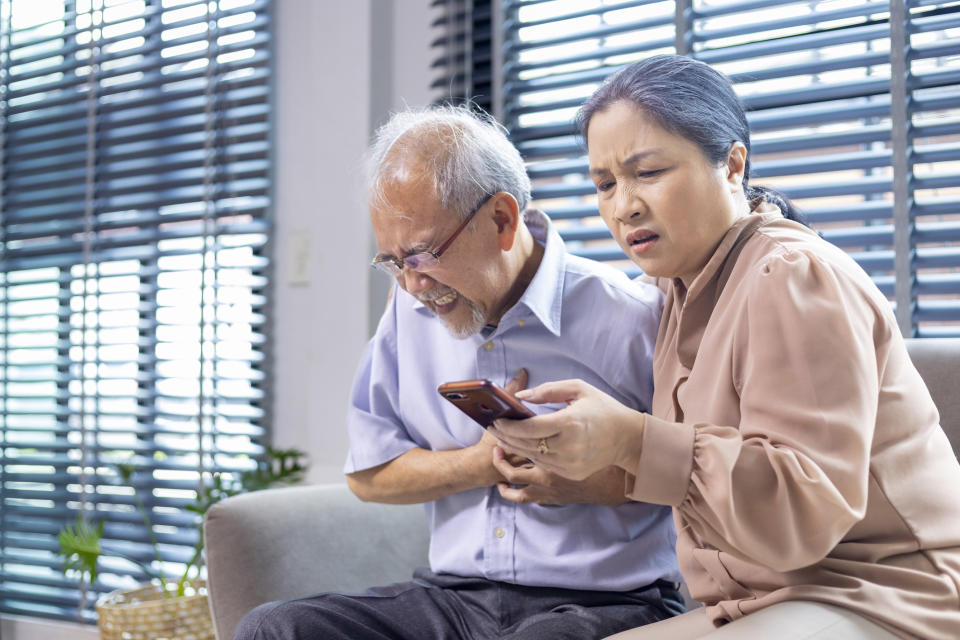

5.“It hurts. But it didn’t hurt nearly as much as I would have thought. Less than when I broke my ankle. About the same as a bad kidney stone. In the movies, heart attacks happen with a sharp pain in the upper left side of a person’s chest. There are shooting pains down the left arm. The person suffering from it grabs his chest and gasps, staggering back. The pain is intense. Then he collapses. It’s a trope. It was different with me. I felt a rather strong pain in my upper back, on the right side. It left me gasping a little. I probably would have gone to the hospital, but I was looking after my son and didn’t know who to call to look after him. After a while, the pain faded. I told myself if I felt the same pain the next day, I was going to go to the hospital.”
“The next day I didn’t feel well. I can’t really explain it. I just felt generally crappy. Sort of like you feel when you’ve eaten too much — only I wasn’t full. It felt…unhealthy. After lunch, the pain I had felt came back. Again, it was concentrated in my left shoulder blade.
One time, in elementary school, I ate lunch cooked by the cafeteria. On the menu were mashed potatoes. And those were the hottest mashed potatoes that I’ve ever eaten. Overheated. Like, they would have melted lead. I took a bite. As it went down my esophagus, the heat caused a sharp, unbearable pain in my midsection, deep down. Maybe you’ve experienced something like that? That’s how it felt.”
—Lance L., Quora
6.“I’ve seen this from both sides. I was a paramedic for 28 years and ‘worked’ countless MIs (myocardial infarctions…the fancy name for the most common heart attack) before I had one of my own. A few years ago, I was working as a mailman and delivering in my mail truck. I felt an increasing pressure directly under my breastbone. I was under a lot of stress and had been having indigestion, so I thought it was simply a bad case of heartburn (this rationale is VERY common for heart attack victims, as is finding that the patients had been popping Tums and Rolaids). With all of my experience, I still mistook this early symptom. However, when the pain radiated to my back, and then I broke out into a cold sweat, I knew exactly what was happening. These are both very common symptoms as the heart attack progresses. I immediately pulled over and called 911.”
“One standard I’ve learned over the years is that if a chest or upper abdominal pain awakes you from sleep, call 911 immediately. That is very serious. I lost numerous patients who ‘denied’ anything was wrong. Talking to spouses later, I heard the same story. Partner suddenly woke up from pain and then started popping antacids…until it was too late. The ER personnel will NEVER criticize you or laugh at you for overreacting. Another thing that we ‘discovered’ is that women more often have abdominal pain and nausea than the upper chest and shoulder pain that men experience.”
—David B., Quora
7.“I (37F) was at work when it happened. We had lunch delivered, and shortly after, I started feeling unwell…dizzy and nauseous. I assumed it was related to what I had eaten. The feelings didn’t go away no matter what I tried — antacids, aspirin, Saltine crackers, etc. I started feeling an additional pain that felt like a really bad heartburn, worse than I’d ever felt before. My coworker/friend suggested I go to the hospital. I suffer from high anxiety, so I didn’t like that suggestion, but as the minutes ticked by, I realized he was right.”
“At the ER, waiting to be called back, the pain became a lot worse. It felt like something was gripping my heart really tightly, and then when I didn’t think I could handle any more pain, it would release. I had tears streaming down my face. It was a horrible feeling. My parents live in a different state, and my dad called as soon as he heard the news. I told him how I was feeling and what was happening. He told me to demand to be seen. He said it wasn’t normal to be in as much pain as I was in. I walked up to the nurse’s desk and told her how much I hurt. A few minutes later, she took me to one of the beds in the ER. They ran an EKG on me, but it didn’t show a heart attack. The ER doctor said, ‘You’re just having a major panic attack. Calm down.’ (How I didn’t punch him right then and there, I have no idea.) They kept giving me IVs of drugs that would normally ‘calm down’ someone with anxiety. Nothing helped. I was crying constantly. The ER doctor said, ‘I can’t believe these drugs aren’t working on you. You’re easily the most nervous patient I’ve ever seen!’ (Again, the urge to punch was strong.)
Finally, after he saw that the drugs were having zero effect on me, he agreed to the nurse’s suggestions of a stress test and an echocardiogram. They decided on the echocardiogram first. They returned to me almost immediately after they read the results to tell me, ‘You’re having a mild heart attack.’
My arteries (three of them) were blocked more than 70%. A cardiologist performed an angioplasty and opened them up with balloons. After recovering for five nights and four days in the hospital, I was allowed to go home. A month of recovery after that, plus cardiac rehab, and I was back to work.
Because I was a 37-year-old woman, the doctor immediately placed me into the panic attack category and nearly dismissed me. I’m so thankful for the nurse who recognized something more severe was happening and fought to have the echocardiogram done.”
—Nikki P., Quora
8.“I had one 17 years ago. It felt like bad indigestion, but I couldn’t get into a position where it eased off a bit. I also had a strange feeling of what I can only describe as ‘dread.’ I knew something was wrong but not what, so I called an ambulance. When it turned up, the paramedics said they thought I was having a heart attack. They did an ECG in the ambulance and sent the result to a doctor who confirmed it.”
“At the hospital, they told me that I’d got there at around the time when most people would be saying, ‘If this doesn’t improve in the next half hour, I’ll call an ambulance.’ It had been a big blockage requiring two stents (and two more a couple of months later), but my suspicion had saved me. I was back cycling 10km to work in a month.”
—Peter G., Quora
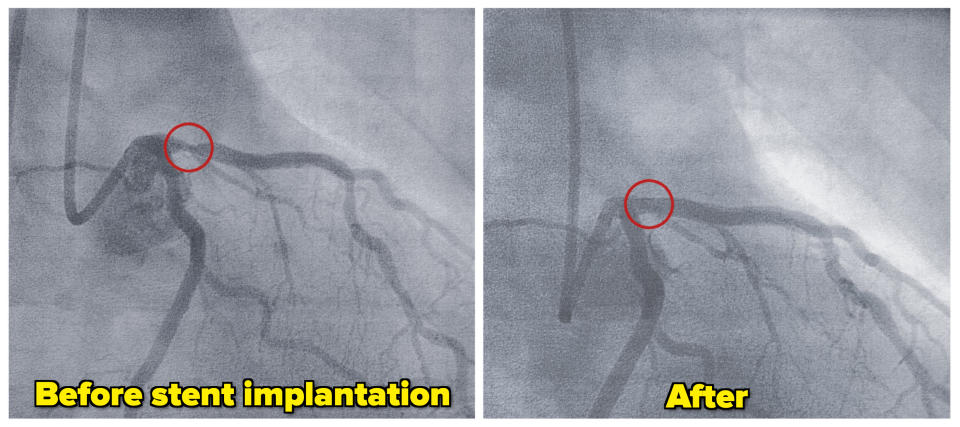

9.“It feels like the end of the fucking world. It began like persistent heartburn. Then, my skin turned clammy, and I was running with sweat. I was hoping it wasn’t what I knew it was, but the seven-foot warrior drove his Assegai spear through my back and out just under the ribcage. I couldn’t find my phone so I stumbled out of my flat, down the stairs, and hammered on my neighbor’s door.”
“‘I am having a heart attack. Call an ambulance.’
I slid to the floor and got out my keys and wallet.
‘Call the number in blue ink (my sister-in-law is in Canada). Tell her what has happened.’
The paramedics turned up and wrestled my fat ass onto a gurney and put me in the ambulance.
Their radio was on, and a rap song was screeching out.
‘I might be dying and don’t want that shit to be the last thing I hear.’
Obligingly, there was silence.
The hospital pit crew were amazing, and the spear was finally withdrawn.
I was 69. This Sunday, I will be 74.
The ambulance crew, A&E, cardiology, and ICU all received pizzas and doughnuts. Three dozen amazing people worked hard to give this miserable old bastard some extra time.”
—George P., Quora
10.At the time of my heart attack, I was a well-trained firefighter/EMT. I had no family history, no evidence of heart disease, and still no discernible reason for the clots I threw on Dec. 29, 2005. I was…26 years old.”
“I went to the ER and knew because of my EMS/FF training that I was experiencing the symptoms of a clot. I felt flu-ish and sweaty. I felt disoriented. I had trouble understanding speech, and my speech was slurred. I felt nauseated like I was hungover, without having imbibed. The right side of my face was numb, and I couldn’t see out of my right eye. I felt a sense of impending doom. I thought I was experiencing a stroke.
After two hours, the ER sent me home, without any testing, after IV fluids and much arguing on my part — stating I had the flu and that all other symptoms were ‘psychosomatic.’ When I refused the leave, they threatened me with the option of being ‘physically removed’ from the building.
Three hours later, after arriving home, a clot lodged in my LAD (left anterior descending, the widow-maker). I had nearly every single textbook symptom:
Profuse sweating: Within moments (it seemed), I was drenched in sweat, as if having been dumped over the head with a bucket full of water.
Insatiable nausea and vomiting: As in, the more I could vomit, the better I would feel.
Shortness of breath: An invisible elephant was most definitely sitting on my chest.
Chest pain: A fire-y, intense burning, and pressure that felt as if my heart would surely rip itself from my chest — envision the birth scene from Alien here.
After 16 hours without prompt care (despite my insistence), it took them another 4 hours to place a stent, although not successfully. By the time they finished, I’d gone a total of 20 hours between onset and adequate intervention.
I will always be a heart patient. But considering that 80% of women who suffer cardiac events won’t survive them, I will forever count myself among those lucky few who do.
Remember, time=permanent damage. And know your numbers. Know your risk factors for stroke and heart attack. Know the symptoms of both heart attack and stroke…and if you have even two of them…seek IMMEDIATE medical intervention. Almost 40% of cardiac-related deaths are in those UNDER the respective STATISTICAL ages (F/65, M/55)…due to lack of prompt care.
I’d rather be slightly embarrassed than dead. Wouldn’t you?”
—JP B., Quora
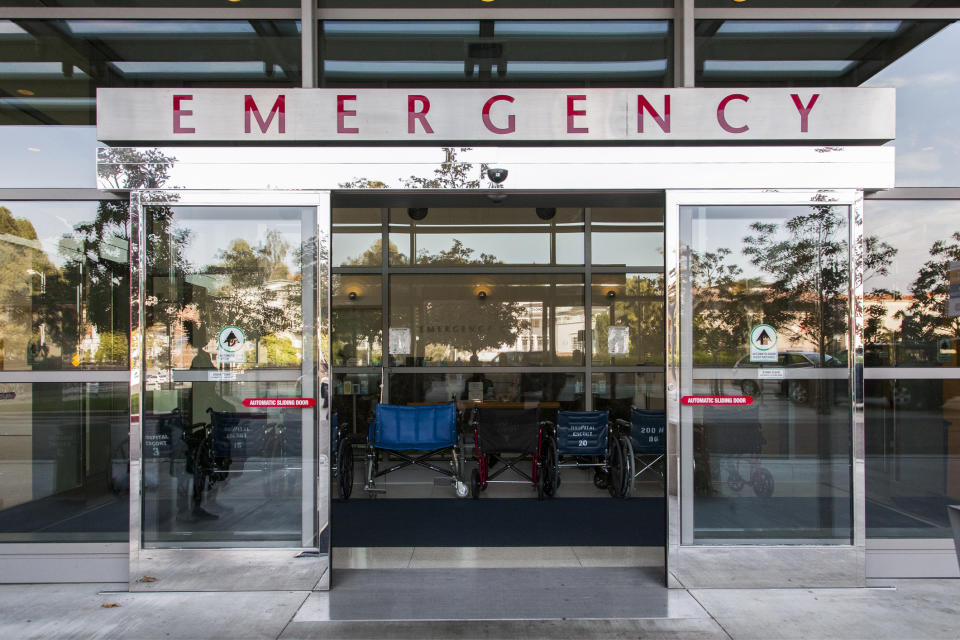

11.“I believe it is different depending on whether you’re male or female. I am a female, and I was surprised at how little it actually hurt. My heart attack symptoms started with a very bad headache. In about an hour, the pain moved to my jaw. After that, I began sweating. I sweated so much it looked like I had been walking in the rain. However, my nose was ice cold. I started to feel pressure in the middle of my chest, but still not a lot of pain. The EMTs did an EKG on me, and the left side of my heart was not working. I was rushed to the ER, and the chaplain called my ‘next of kin.’ I immediately had surgery, and they found I had 100% blockage in two places and 80% blockage in one more. The doctor placed three stents in my heart, and the pressure abated. I stayed in the CCU for six days and was released in a week.”
“I want to make others aware that a major heart attack does not have to hurt badly. If you are sweating, feel pressure on your chest, and feel tired, seek medical attention immediately.”
—Jill J., Quora
Some entries have been edited for length and/or clarity.
Source Agencies


